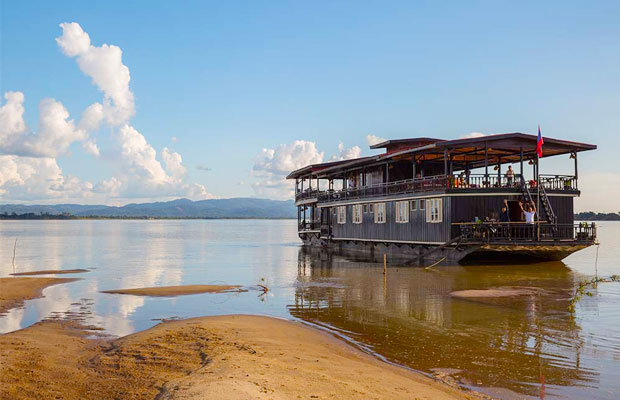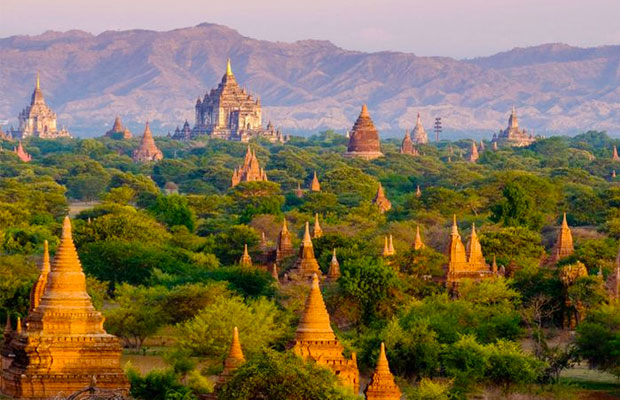Environmental Conservation and Sustainability
- Please say no to exotic foods that threaten wildlife and endangered species, and whenever possible choose organically farmed food.
- Please say no to products made from endangered plants or animals, such as ivory, tortoise shells, and wild animal skins.
- Please turn off your air conditioner, fans, lights and other electrical appliances when you leave your hotel room or guesthouse.
- When visiting coral reefs, please do not touch live coral or take home sea life.
- Please be conscious about how much trash you are creating and practice the 3 R’s: Reduce, Reuse, Recycle.
- Please travel keeping in mind the slogan ‘leave no trace’.
- Keep to designated trails when out walking and be diligent when cleaning up after yourself and your group at rest stops and camp sites.
Cultural Preservation and Respect
- Try to learn about the culture before you travel and be willing to try alternative options.
- Please learn some of the local language(s). Even the basics such as ‘hello’, ‘good bye’ and ‘thank you’ are highly appreciated!
- Please respect the cultural differences between yourself and your hosts. Make every effort to appreciate what is different.
- Please be careful when showing affection in public. It is best to limit affection to holding hands – especially in rural areas.
- Please avoid patting or touching people on their heads, it is the symbolic high point in Asia.
- Be aware of the importance of the ancestral shrines in Vietnam. Avoid backing up to, pointing your feet at, or changing your clothes in front of any temple, shrine or altar.
Ethical Travel
- By using locally produced goods and services you contribute financially to the community you are visiting and help turn tourism to the country’s benefit.
- Please drink and eat local food when you can.
- Use local transport and support local shops.
- Please try to avoid paying for simple acts of kindness in cash – for example, being given directions – a simple ‘thank you’ and a handshake will do.
- Hire a local guide when visiting protected areas or historical sites. This way you will contribute to the local economy, and learn more about the area.
- Giving money away to both children and adults promotes a begging mentality and culture.
- Please avoid giving children money or gifts. It is better to pay for a postcard, map or shoeshine.
- Giving chocolate or sweets is a bad idea, as many people do not have access to dentists and knowledge of dental hygiene is poor.
- Please support local initiatives and community based projects whenever possible. A simple acknowledgment of a job well done makes all the difference
HOW TO BECOME A RESPONSIBLE TRAVELER
Being a responsible traveller is easy. It does not require much effort and it can make your experience much more authentic and unique. Responsible tourism is all about leaving a positive impact on not only the environment, but also the people who live in the places you choose to visit. The following actions are based on the World Tourism Organisation’s guideline to become a responsible traveller. Passion Asia Travel encourages all travellers to be responsible before, during and after their journey. Thus, we would like to share a few tips with you!
BEFORE YOU BOOK YOUR HOLIDAYS
Find and read the company’s policy for responsible tourism. You can read ours here (Responsbile travel with Passion Asia Travel).
Plan your trip to minimise carbon emissions. We know that most international trips will require flights, which is not the most the most environmentally option. However, once you reach the destination, try to ask for alternative options such as bus or train to minimise internal flights. If there is no other way but flying, then book direct flights. Also, some airlines may offer option to offset your share of carbon emissions for a small extra cost, which goes direct to carbon offset projects.
1-BEFORE YOU TRAVEL
Understand the local culture. Try to learn a few simple phrases such as good morning, please, thank you and use them as much as you can. You will be amazed by how far you can go and be appreciated by locals. Also, do not forget to learn as much as possible about your destination and take the time to understand the customs, norms and traditions. Avoid behavior that could offend the locals.
Remove all excess packaging. Be aware that in many places in Vietnam & Southeast Asia, recycling or waste disposal is limited and complicated. So, leave packaging at home and consider buying something when you are at the destination, this will also support the local economy.
Ask about a local conservation or social project. You can get involved with these projects while you are travelling. But please note that we do not support or involve in visits to orphanages, since they have a negative impact on the children.
2-DURING THE HOLIDAYS
Hire a local guide. When doing so, you will get to experience the destination with someone who knows what is like to live there, the culture and everything that destination is all about. It is also an excellent way to support the local economy.
Be a conscious shopper. Avoid products that are made from endangered species. Try to buy locally-made and traditional handicrafts as it is a good way of providing both economic and cultural support for small communities. If you are bargaining, please do not get carried away or pushy, which might offend the locals. The goal is to find a fair price for both-ends, not the lowest possible.
Respect people and cultures. This may sound obvious, but we need to be reminded because not every culture is the same. You may think that it is okay to take endless photos without asking, or being unnecessarily noisy, or dress a certain way, but it is important to keep in mind that you are in a different place and there are codes you need to respect. For example, taking your shoes off during the visits to pagodas and temples. Think how you would want to be treated if the roles were reversed. If you are not sure, ask our travel consultants and they will give you advice about what is appropriate and what is not depending on your destination.
Use local transport. It is a great way to meet local people on their own terms and of course reduce pollution and carbon emissions.
3-AFTER THE HOLIDAYS
Write comments and feedback about your holiday to your travel company, hotels, restaurants or tourist board. Suggestions about reducing environmental impact and increasing benefits to local communities are always welcome. For any serious issues regarding human rights abuse or wildlife exploitation, you may want to contact relevant charities or organizations.
If you promised to send photos or gifts to local people, remember to do so.
Enjoy your memories, reflect on your experience and, of course, start planning your next trip keeping in mind all the points above!

 Phnom Penh City Tour
Phnom Penh City Tour
 Cai Be Princess Mekong Delta Boat Trip
Cai Be Princess Mekong Delta Boat Trip
 Active Escape in Northern Laos
Active Escape in Northern Laos
 Southern Laos Cruise
Southern Laos Cruise
 Luxury Halong Bay Tour
Luxury Halong Bay Tour
 Awaken Tastebuds and Spirits in Bagan
Awaken Tastebuds and Spirits in Bagan
 Legacy Indochina
Legacy Indochina
























